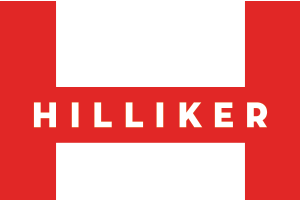 Over my thirty-three years in the commercial real estate business, I’ve helped hundreds make smart property investments. The market is complicated, but with an average rate of return of 10.6%, real estate consistently outperforms the S&P 500 Index (roughly 8%).
Over my thirty-three years in the commercial real estate business, I’ve helped hundreds make smart property investments. The market is complicated, but with an average rate of return of 10.6%, real estate consistently outperforms the S&P 500 Index (roughly 8%).
That’s good news!
Additionally, investors who partner with savvy advisors tend to make more money. Here at Hilliker, we’ve collected thousands of stories from clients who’ve made their lives—and the lives of others—better through a well-timed real estate deal.
But no property investment makes sense forever. No one wants to hold on too long, missing an opportunity to turn a profit. How do you know if the moment is right to move on?
If you keep your eyes open for these crucial decision points, you’ll be better positioned to make the most out of your investment.
Opportunity # 1 (Owner/Occupiers): You’re Ready to Sell Your Business.

In most cases, we recommend business owners prepare their building for sale at the same time they’re preparing their business for sale. In a business-plus-property package deal, the business owner often loses money on the property. Without competition, they’re unable to negotiate a price at full market value.
Additionally, renting to the property the people who now own your old business is usually not a good idea. Here’s why:
- Perhaps the new owners will feel unhappy with an aspect of the company you sold them. Because of their unhappiness with the business deal, they could find ways to make your life difficult as their landlord.
- If the new business owners don’t operate the business you used to own wisely, you may give them too much leeway as their landlord. You may hope to see them turn things around when another landlord would simply terminate their lease.
- If you structure the lease as part of the sale of the business, you likely won’t get the market rate. Just like the sale of the property, the two should be separate transactions.
- Because they are unsure if they’ll grow, they rarely sign a longer-term lease. This makes your property less attractive to a potential buyer.
Stay out of this sticky territory! Here’s what we suggest instead.
- Make sure a lawyer structures your holdings by filing your business and real estate under separate corporate entities.
- Have a qualified real estate broker (like Hilliker) properly value your property and qualify the new owner’s credit-worthiness.
- Have your broker negotiate a market-rate long-term lease with the new owners of your business. They’ll be sure to maintain the sort of capitalization rate (cap rate) that will appeal to an outside investor.
Following these steps will put you in a more advantageous position — and keep you out of muddy waters.
Opportunity #2 (Owner/Occupiers) – Your Building No Longer Reflects Your Business

Though it may have been perfect when you first moved in, there are some indicators that you’re in the wrong space for your business.
- You’ve outgrown it, but instead of trading up, you’ve decided to lease one or more auxiliary spaces. Though it may make sense in the short-term, it could also add unnecessary complexity as your business continues to grow.
- You’ve scaled down operations or staff, and part of your building now sits vacant. Unless bringing in a tenant makes sense, consider selling and purchasing something that better meets your needs.
- Your business model doesn’t require heavy foot traffic or visibility, but your neighborhood suddenly turns into a hot retail district. You may be able to make a profit by selling and moving to an area more suited to your business.
Opportunity #3 (Investors) – You’re at 100% Occupancy

Your broker should make it his or her job to pursue high-quality, credit-worthy tenants for your space. If that person is competent, your tenants will sign win-win leases that make you money and make them want to stay.
Once your building is leased-up, you could sit back and enjoy the moment. But it’s also the moment your property is most attractive to investors and a great time to make money and roll it into an even more lucrative—or “value-add”—investment.
Opportunity #4 – Your Neighborhood’s Economy Is Changing

Economic upturns and downturns signal opportunities to sell, but investors want to find the perfect moment to maximize their profit. Though there is no real-estate crystal ball, there are a few indicators to help you decide.
- How are traffic patterns? If the road system has changed or there are fewer cars in your neighborhood, your property value may be changing as well.
- Is the center of town moving? If there is a new development a few blocks away, threatening to pull traffic from your location, you may want to sell. Property owners with retail tenants should take notice.
- Is a significant portion of your building vacant? Though not ideal, this could work in your favor. Businesses in a position to buy may want to move into the empty space and have the added benefit of income from tenants.
- Are there substantial investments near you? If you see new developments or rehab projects in your neighborhood, it’s a good sign. If you don’t want to put money into “keeping up,” now may be a good time to sell.
Opportunity #5 (Manager/Owners) – You’re Ready for Retirement

Those who actively manage the buildings they own — apartment buildings and retail strip centers in particular — have more than a full-time job. Between dealing with contractors, collecting rent, making repairs, and keeping space leased, you may be ready for something more manageable.
In that case, you can pass the management to a third-party, or it might be a great time to sell to another investor. Your next investment can be higher-yield and lower maintenance (keep reading for more!).
Opportunity #6 – Roll Your Profits into a Triple-Net Investment!

When you sell your building, we can help you reinvest in a low-stress triple-net (NNN) investment property. Through our partners at Westwood Net Lease Advisors, you’ll be able to set up a 1031 Exchange, a tax shelter that allows you to defer paying capital gains taxes on your sale.
Then, we can help you find NNN property. NNNs are the easy-button of real estate investments for a couple of reasons.
First, you own the property, but the tenants are 100% responsible for its upkeep.
Second, NNN tenants are often locations of extremely credit-worthy companies. Our clients own NNN properties that house Dollar General, Walgreens, and Buffalo Wild Wings, to name a few.
Is it time to sell your commercial real estate investment?
Though there is no “perfect time,” we at Hilliker Corporation want to be part of your success story. We’re advisors who can help you weigh your options, giving you the tools and information to make quality decisions for you and your future.
We’re poised to help investors and entrepreneurs like you. Give us a call today.

